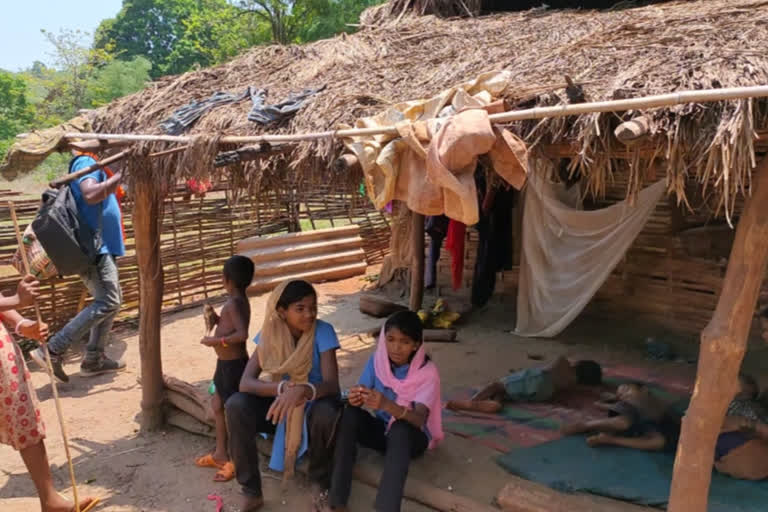Raipur (Chhattisgarh): While urban dwellers living in densely populated metropolitan cities across the country are struggling to keep the fatal coronavirus disease at bay, a tribal community inhabiting remote areas of Chhattisgarh's Bastar district seems to have it all figured out.
Abhujhmaria, listed among the Particularly Vulnerable Tribal Groups (PVTG) in the state, have so far remained untouched by the deadly virus. All thanks to their traditional way of life which keeps members of each family at a safe social distance from one another.
As part of their tradition, each member of an Abhujhmaria tribal family usually has a house of his/her own, thereby helping them practise social distancing at all times.
It is this unique tradition which has helped these tribals - who are among the most vulnerable indigenous communities in the country - to shield themselves from the COVID-19 infection.
"All the members of my family have been living in separate houses. We even cook our meals separately. This has been an age-old practice," said one of the tribals.
Also read: Three Pakistan High Commission staffers held for spying ; two of them expelled
"I have three grandsons and we have built three separate houses for them," said an elderly Abhujhmaria woman.
However, given their vulnerability, the state government has taken several precautionary measures including cancellation of 'haat bazaars', where traders from urban areas visit during weekly markets. Accredited Social Health Activists (ASHA) workers have also been engaged to create awareness on sanitisation and hygienic practices among the tribal population.
Chhattisgarh's nearly 32 percent population belongs to indigenous communities and tribals.
The tribal-dominated state recorded its first COVID-19 death on Friday, with 18, 415 people being infected.



